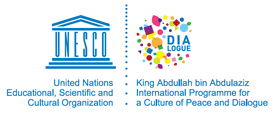Duration: 2 hours
KEY TOPICS
- Introduction to information and information literacy
- Key concepts in information literacy
- Impact of information on societies and new skills
- Standards and applications in information literacy
- Stages of information literacy
LEARNING OBJECTIVES
After completing this unit, teachers should be able to:
- Describe the role and importance of information and the need for information literacy skills in information and knowledge societies
- Demonstrate understanding of stages/major elements of information literacy applicable across all domains
- Identify and explore general information sources (print and electronic)
- Analyze information literacy standards
- Identify and discuss ethical and responsible uses of information tools and resources
PEDAGOGICAL APPROACHES and ACTIVITIES
The terms ‘information’, ‘information literacy’, ‘ICTs’ and ‘key skills’ for the 21st century are in frequent use in discussions about the information and knowledge society. Citizens require new competencies (knowledge, skills and attitudes) in order to participate in and contribute to society. An understanding of these terms is necessary before engaging in training, and must first of all begin with a clear comprehension of the concept of information.

